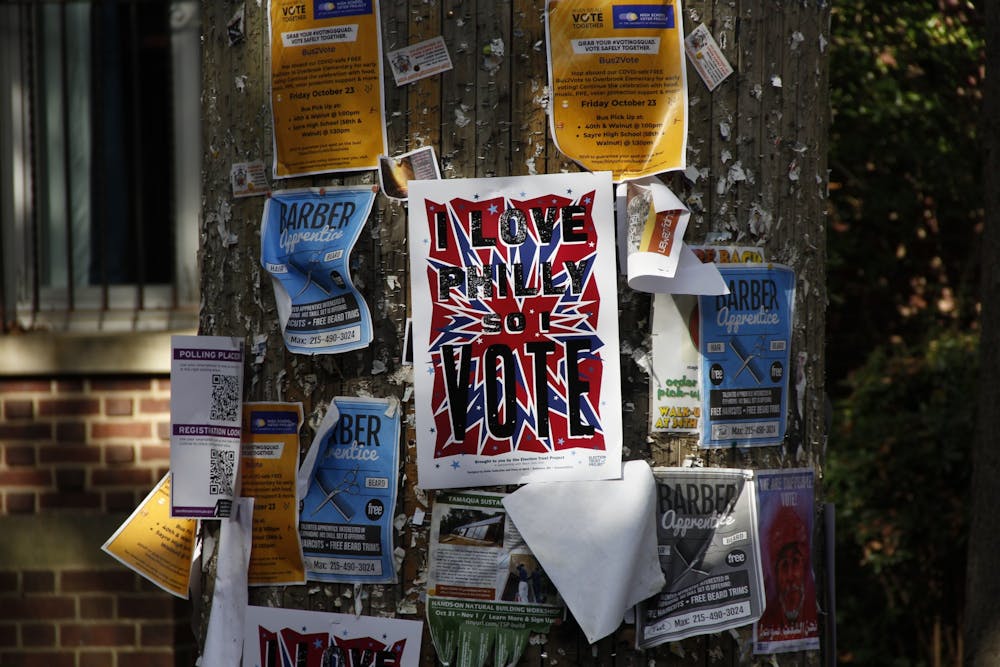
If you’ve walked through campus anytime in the last month, you have been questioned by eager volunteers with clipboards asking if you’re registered to vote. These students are aimed at registering members of the Penn community to vote in Pennsylvania. In a recent Daily Pennsylvanian article about voter registration, Penn Dems boasted the 625 people they have registered ahead of the upcoming election.
My guess is this isn’t the first time you’ve been asked to register in Pennsylvania. As a first year starting college in the fall of 2020 ahead of one of the most controversial elections of our lifetime, it was a regular occurrence for me to be advised to cast my vote in Philadelphia where it would supposedly carry more weight. Growing up in Connecticut, I’d often hear people say that their vote was “meaningless” due to the perceived solidly blue nature of politics in the state.
Voting should not be about partisan strategy, but instead about representing the interests of your community when you go to the ballot box. As a registered Republican in my home state of Connecticut, where a Republican hasn’t carried our electoral votes since Bush in 1988, I go to the polls each election day excited to cast my vote in my home state — but not to change the color of my state. I am proud to vote for candidates who are looking after my neighbors, fixing the potholes on my grandmother’s street, and vowing to fund the public schools attended by my entire family.
The attention to swing states is a symptom of the larger American obsession with national politics. Even in a midterms year, there is so much more on the ballot than just hotly contested gubernatorial and senatorial races. In Philadelphia, for example, State Senate, State House, and local City Council seats are all also up for grabs, which will all be influencing changes on a level much more personal to local residents.
As a Penn student and only circumstantially a resident of Philadelphia, I am simply not affected by state and local political problems in the same way that the average West Philadelphia resident is. Sheltered by the Penn bubble and the luxury of the Penn Police, I do not feel the impacts of District Attorney Larry Krasner’s failure to prosecute or Mayor Jim Kenney’s abandoning of the city to the same degree. Why should I impose my ideological views on a Philadelphia City Council race when it is not my children who would be losing out on the opportunity to attend a quality school if the city elects someone who opposes charter schools?
I am anticipating my Penn peers will explain that their registration in Philadelphia is limited to their interests in national and statewide races, not a desire to vote in local elections. If this is the case, you must ask yourself why your focus is so hyper-nationalized. Only 15-27% of voters turn out in off-cycle local elections, a number that increases to 40% during midterms. While state politicians are now under the spotlight following the Dobbs v. Jackson ruling, even before the return of abortion regulatory power to the states, local and state policies have always affected your day-to-day life more regularly than national politics. Despite what CNN or Fox News may tell you, issues like taxes, infrastructure, education, and public safety should be the topic of all of your political conversations.
By focusing on voting strategically rather than voting in the place you feel the strongest ties, you miss out on an opportunity to use your lived experiences to inform your vote and make decisions with the long-term interest of your community at heart. The founding fathers saw each of the states for their unique demographics, cultures, and communities — a crucial motivator in Alexander Hamilton’s defense of equal representation in the Senate in Federalist 62. This is still true in many ways today, but party lines have now overridden the actual act of representation in Congress with senators like Sen. Joe Manchin (D-W. Va.), acting with his constituency in mind ahead of his partisan affiliations, becoming increasingly less common.
As someone who’s worked on local and state campaigns, and who exhibits an exuberant amount of federalist pride, I understand that voting in the state that is closest to my heart is an easy choice. I am proud to call Connecticut home and hope to continue to do so for as long as I can. For some people, Philadelphia may be the closest place you have to an American residency, and if that is the case, I encourage you to vote here. However, for the vast majority of Penn students, life in Philadelphia is one of temporary visitation and a vote cast here is not for pride of place but for strategic placement of partisan interest.
For parents in Philadelphia who fear that their children will not make it home safe in a city where Wawas cannot even remain open due to increases in crime, ideological impulses, and strategy of newcomers to the city is a privilege they cannot afford. Therefore, this November, before going to the polls in Philadelphia, I challenge you to think about what it means to vote as a member of a community, and whether you are voting with the interests of the community or a political party at heart.
LEXI BOCCUZZI is a College junior studying philosophy, politics, and economics from Stamford, Conn. Her email is boccuzzi@thedp.com.
The Daily Pennsylvanian is an independent, student-run newspaper. Please consider making a donation to support the coverage that shapes the University. Your generosity ensures a future of strong journalism at Penn.
Donate




